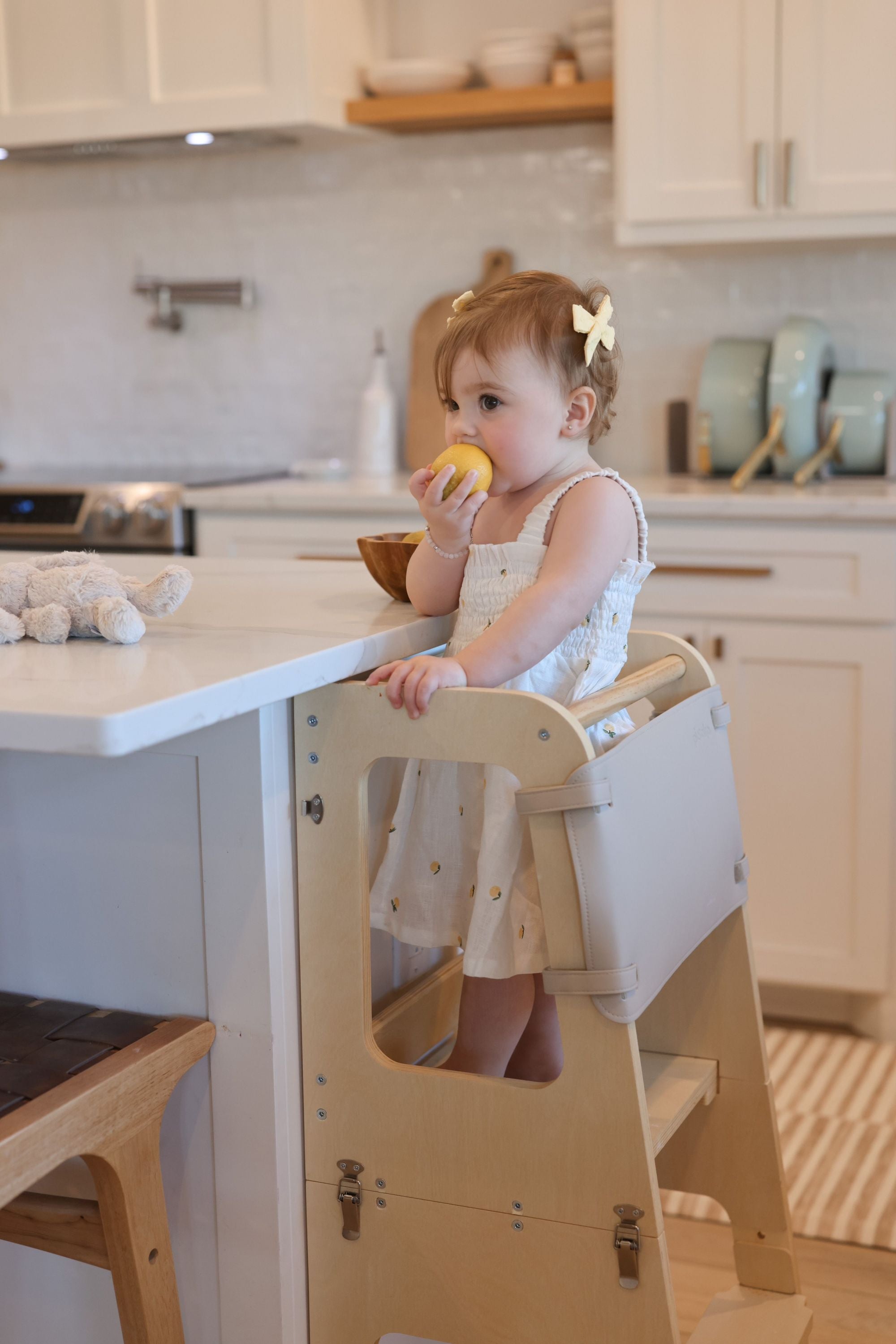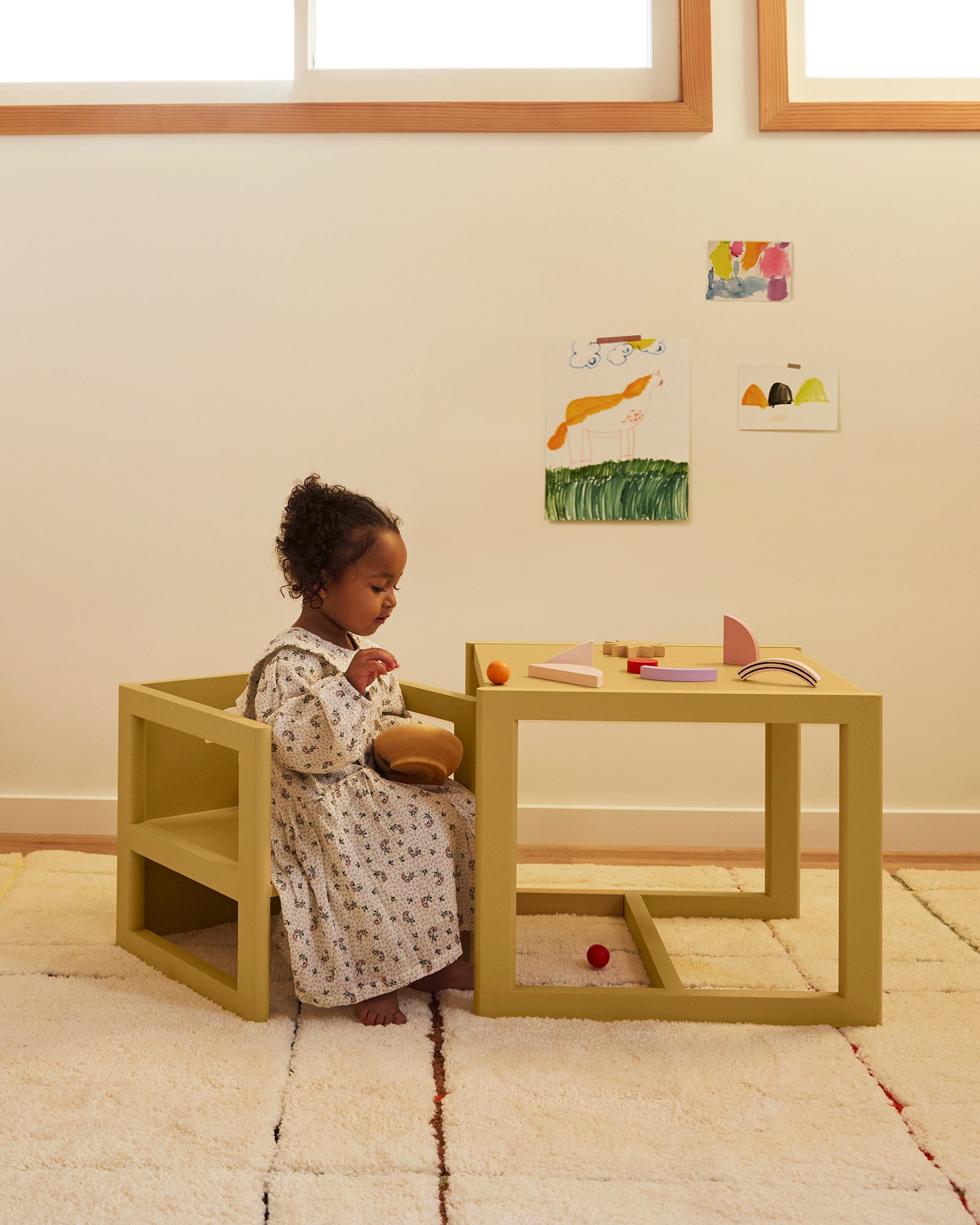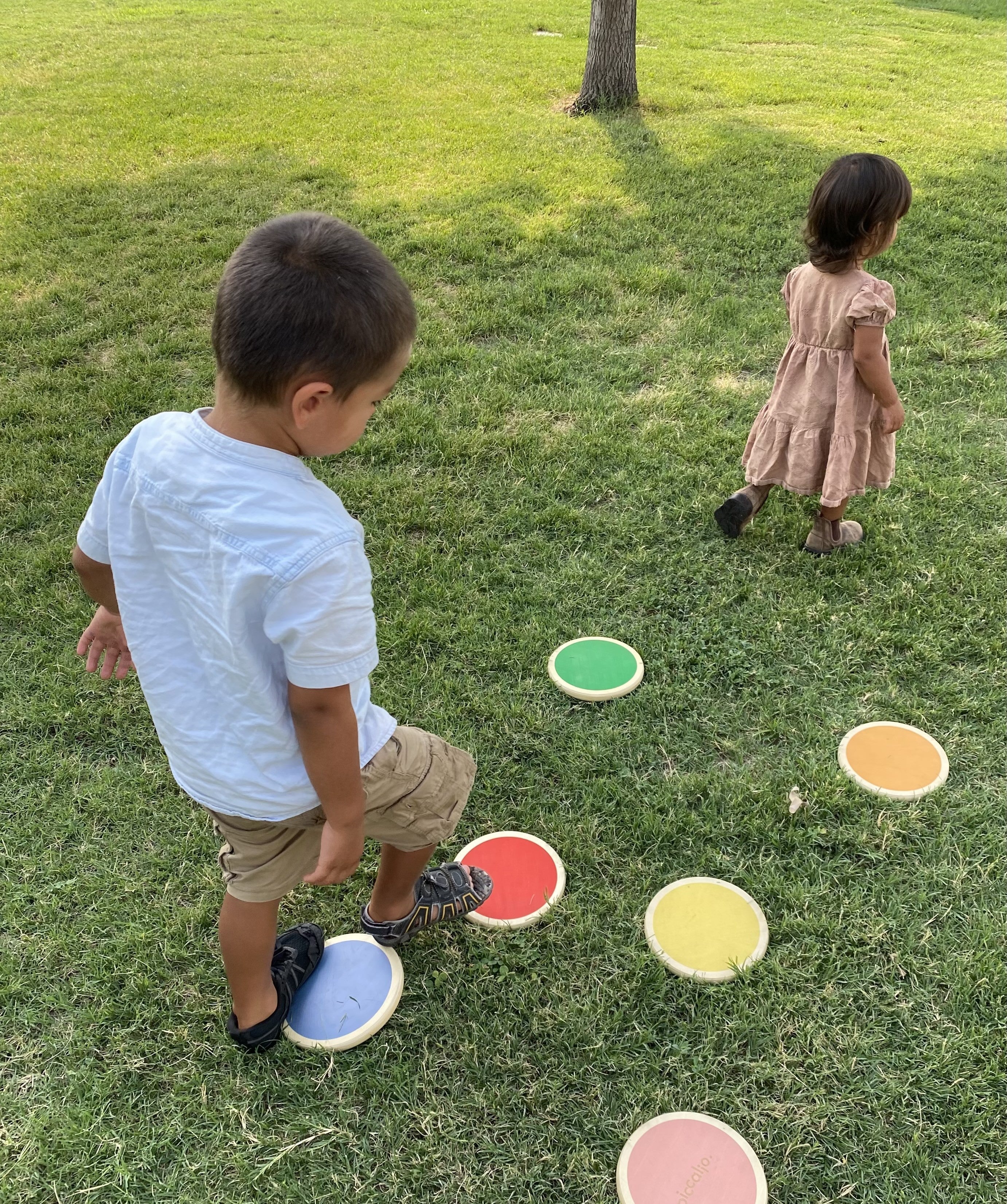Everyone has made an impulsive decision at some point in their life. Whether you spontaneously pull into the fast food drive-through on the way home or yell at your child in a sudden burst of anger, we can't always control our impulses. Young children have it even harder than we do. Because their brains are still growing, little ones have poor impulse control.

What does that mean for parents? Psychologist Dr. Nina Kaiser is also a mom, specializes in parenting, and works with children regularly. I spoke with Dr. Kaiser to learn more about how children develop impulse control. Here's your guide to impulse control in preschoolers, when kids get self-control, and what to do in the meantime.
When Do Kids Develop Impulse Control?
According to Sanford Health, "The part of the brain responsible for exerting control over their emotional impulses is not well developed until age 3 or 4." However, children don't magically start managing impulses at four.
Developing self-control is a process that takes time. As Dr. Kaiser explains, "Self-control is an executive functioning skill that is neurobiologically based and improves as kids' brains mature! As kids get older, the parts of the brain linked to self-control and impulse control become more complex and more interconnected in a way that allows them to pause and put on the brakes rather than acting immediately on their impulses."
What is Self-Control for Kids?
In simple terms, self-control is the ability to control and choose our own actions. This can be extremely hard when you're angry, sad, or upset. For kids, this can result in hitting, biting, and tantrums.
Yet, troubles with self-control in toddlers go beyond outbursts. Some common impulsive decisions in kids you may also notice are:
- Your child running away from you in the grocery store
- Talking loudly in a place where they need to be quiet
- Wanting to eat lots of candy
- Snatching a toy they want out of a friend's hand
Young children feel a desire or impulse and then act on it. As they grow, kids learn to control their actions based on societal expectations and natural consequences. Even more importantly, children develop the skills to control their actions in a way that helps them achieve their goals.
Most Parents Don’t Understand Impulse Control in Preschoolers
Surveys show that parents often overestimate their child's self-control abilities. Specifically, PBS reported:
- "Over half of all parents (56 percent) believe children have the impulse control to resist the desire to do something forbidden before age three." In reality, children don't gain this skill until they are 3.5 to 4 years old. Even then, children don't demonstrate this skill consistently.
- 42% of parents believe that by the age of 2, children can control their emotions. In reality, this ability doesn't appear until about 3.5 to 4 years of age.
When parents understand that children's brains are still maturing, they can stop worrying about behavior problems in their toddlers. Dr. Kaiser says parents should "expect impulse control to be hard for our kids - that doesn't mean that they are bad kids, just that they are kids whose brains are still growing and maturing!" With this in mind, parents can focus their efforts on supporting their child's learning process.

How to Manage Children Who Don't Have Self-Control Yet
Before children develop self-control, parents need to fill in the gap. Dr. Kaiser says, "As parents, we can't expect young kids to control their impulses independently! Part of our job as parents is to establish structure and scaffolding that will help our kids succeed." This boils down to enforcing rules and helping your little one manage their emotions.
Dr. Kaiser suggests, "We can gently set expectations, offer prompts and reminders in the moment, and correct our kids at the times that they act on their impulses and break the rules."
If your child bites and hits when they're angry, you can help by acknowledging their feelings. You can say, "I know you're upset. You're very angry." Also, prevent them from hurting anyone. Over time, your child will learn how to express their feelings using their words instead of through outbursts.
As a mom of three, I've also used Dr. Kaiser's suggestion of setting expectations many times. Children need reminders about how to behave. For example, before going to the library, I would talk to my little ones about the importance of being quiet. Then, if they were too loud, we would need to leave.
Similarly, I'd set up expectations for grocery shopping. I'd say, "You need to stay close to me. We're only going to buy what's on our list." By explaining ahead of time, you can help your child prepare and know what to expect.
You can also role-play self-control in situations that come up often for your child. For example, practice social skills such as saying "please" when they want a toy. Or, practice waiting in line to go down the slide or use a swing.
How to Help Preschoolers Develop Impulse Control
Teaching self-control requires patience and time. Impulse control involves several skills, including:
- Emotional regulation, or being able to name and feel emotions
- Resisting urges and impulses
- Problem-solving and developing coping skills to resist impulses
In short, preschoolers need the chance to practice self-control. This happens in everyday life situations, from waiting in line at the grocery store to following a teacher’s instructions.
However, you can also teach other strategies that help your child learn self-control. Psychotherapist Amy Morin suggests teaching anger management skills such as taking deep breaths. She also recommends teaching emotional awareness and problem-solving skills.
Restraint Collapse: Why You'll See More Impulsive Behavior After School
Even older children may struggle with impulse control, especially in certain situations. One common scenario is the after-school meltdown. Your child works hard to control their impulses and behavior all day at school. So, when they come home from school, they might fall apart, giving in to all their impulses.
This behavior is understandable, and you can help your child learn to cope with these feelings appropriately. Depending on their needs, that might look like uninterrupted quiet time or time outdoors running around. Either way, recognizing your child's hard work with self-control at school can help make the transition to home smoother.
Self-Control for Kids: An Essential Skill
Research shows that self-control is essential for your child's future success. Achieving self-control is what allows your child to ignore distractions, delay gratification, and work toward goals. But remember, as Dr. Kaiser says, this is a natural process that involves both the maturing of your child's brain and real-life experiences. With patience, you can help your child build strong impulse control skills.
Sources











Leave a comment
This site is protected by hCaptcha and the hCaptcha Privacy Policy and Terms of Service apply.